Signs of Food Intolerance in Babies and Children: Allergies, Intolerances and Sensitivities

Feeding your baby new foods can be a stressful time, it’s a change of routines and most importantly, the biggest concern I hear from parents is about food allergies. Questions I get: How would I know that my baby or child has a food allergy? What should I look out for?
Some of the most commonly asked questions about feeding and nutrition in my world as a pediatrician, yes, you guessed it, are about food allergies.
What is a true food allergy? How do I know my child is having an allergic reaction to food? What does food sensitivity or intolerance mean? What is the proper approach to feeding my child safely without having a bad reaction from food?
These are all appropriate and excellent questions when it comes to feeding your children.
So let’s start by first revisiting the meaning of these terms: Food Allergy, Intolerance and Sensitivity.
What is a childhood food allergy?
Food allergy is defined as an immune-mediated response your body has towards a food allergen. Our body reacts mainly in two ways: IgE-mediated and non-IgE-mediated.
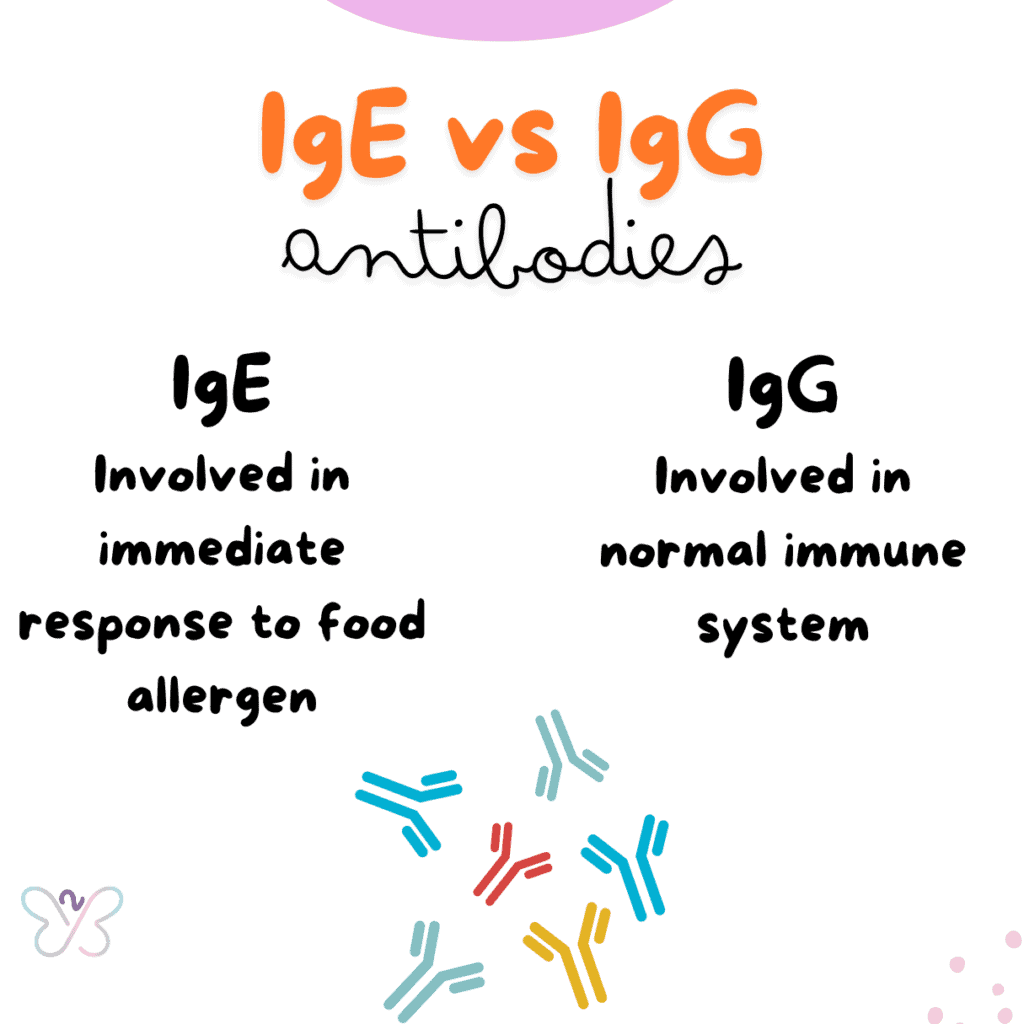
Non-IgE mediated food allergies are caused by a reaction involving other components of the immune system apart from IgE antibodies. The reactions do not appear immediately after eating the offending food allergen, but hours later, and they can present as gastrointestinal reactions like vomiting, bloating and diarrhea.
In IgE-mediated allergies; our body produces immunoglobulins (IgE) antibodies to a specific food. When there is an immune-mediated response, this means that exposure to a certain food triggers an increase in the production of IgE antibodies that causes allergy symptoms in the body.
The most common IgE-mediated common food allergens are: milk, egg, soy, wheat, peanut tree nuts, fish, and shellfish.
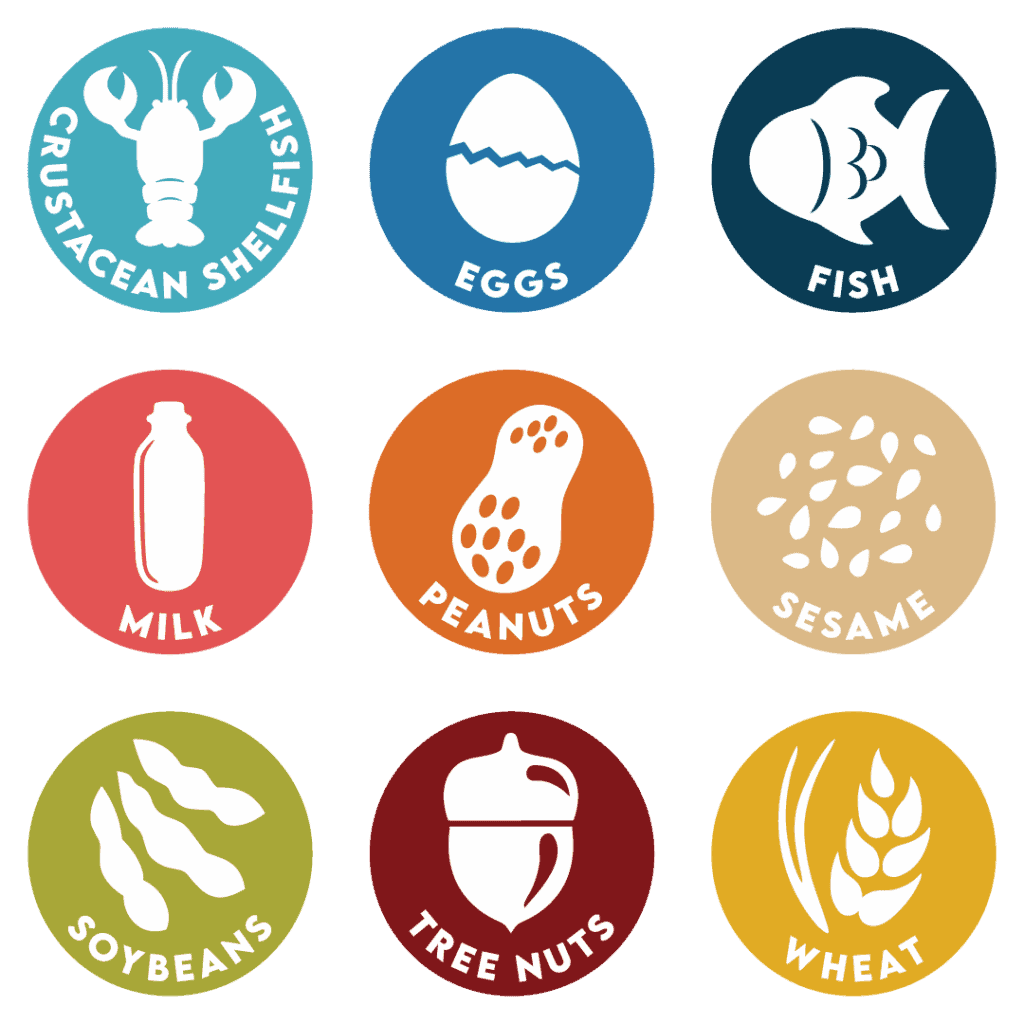
In the case of a true food allergy, a bodily reaction happens EVERY time that the specific food allergen is ingested.
These food allergy symptoms may be:
- skin: itchy, red blotches, hives or welts, mild to severe swelling
- eyes: tearing, redness, itch
- nose: clear discharge, itch, congestion
- mouth: itch, lip swelling, tongue swelling
- throat: tightness, trouble speaking, and trouble inhaling
- lungs: shortness of breath, rapid breathing, cough, wheeze
- stomach: repeated vomiting, nausea, abdominal pain; diarrhea
- cardiovascular: weak pulse,
- neuro: anxiety, agitation, loss of consciousness
- and anaphylaxis, which is the most severe, whole-body allergic response involving multiple body systems
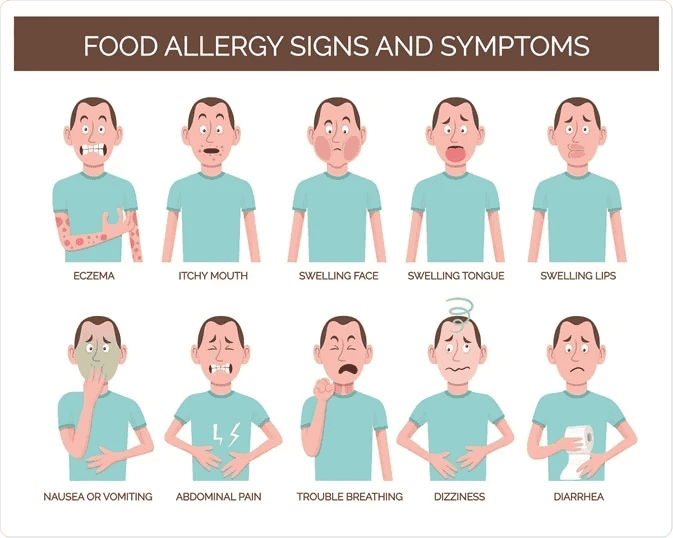
Because true food allergies can range from mild symptoms to severe symptoms, it is often, and understandably so, a topic that causes a lot of stress in parents introducing new foods to their growing babies and toddlers.
What is a childhood food intolerance?
In contrast to food allergy reactions, which is reproducible every time there is an exposure, a food INTOLERANCE can produce varying reactions and bodily responses depending on the amount ingested.
That is because food intolerances result from your body’s inability to digest or fully break down a specific food. Take for instance, milk intolerance, which is not a true milk allergy, but it derives from the inability to break down lactose (a sugar found in milk), leading to symptoms of discomfort such as bloating, abdominal pain/cramping, fatigue, joint pain, headaches and diarrhea. This is why we often hear about people w/milk intolerances still consuming dairy products from time to time, with varying severity of reactions.
Here are some common food intolerances, which applies to you?
- Lactose intolerance
- Gluten-the inability to break down or digest gluten, a protein found in wheat/rye/barley
- Histamine intolerance
- Caffeine intolerance
- Salicylate intolerance
- Fructose intolerance
What is a childhood food sensitivity?
Lastly, FOOD SENSITIVITY has gained a lot of popularity and attention lately in the media due to marketing of food sensitivity test kits. This is a GRAY area where there is NO consensus on the medical definition of food sensitivity.
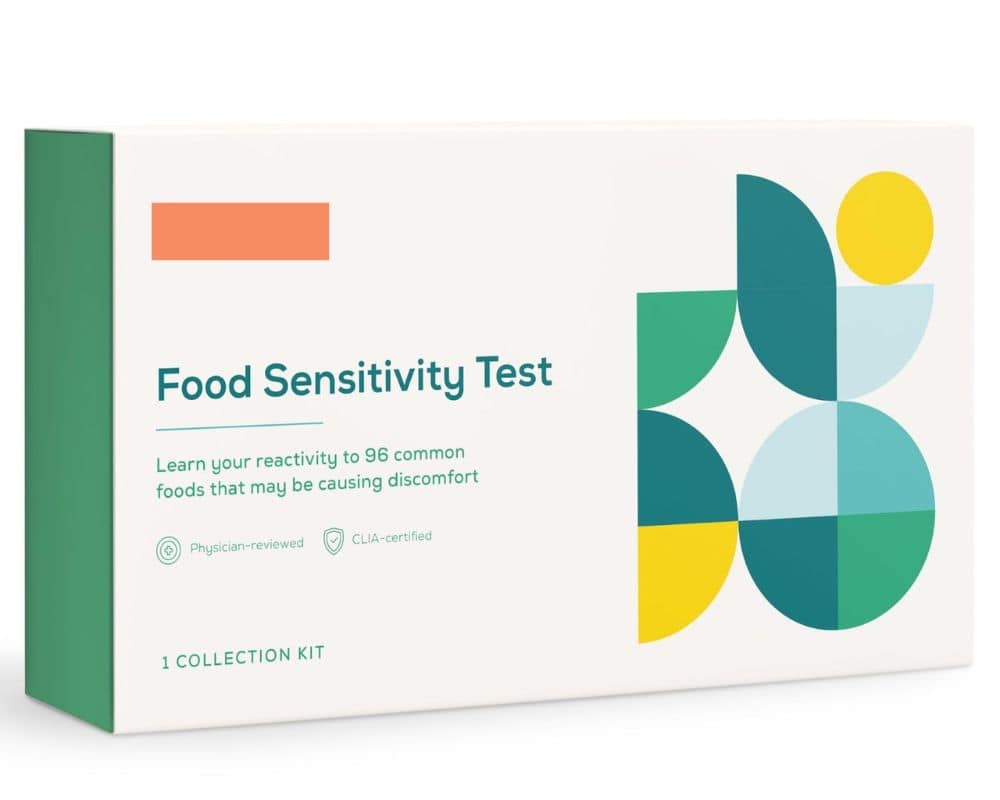
FOOD sensitivity is similar to intolerance in the sense that having a food sensitivity suggests difficulty digesting a certain food. The current definition of having a food sensitivity refers to having negative body reactions to any specific food ingestion.
Food sensitivity tests are poorly studied in well-controlled studies and show a poor correlation with actual food allergies that are immune-mediated responses. The results on food sensitivity testing are hard to interpret because:
1) How the values are derived are not clearly defined
2) Your body’s reaction or “sensitivity” to certain foods may change widely from week to week
For instance, if I am just recovering from a viral illness like a common cold, my body may not tolerate milk and many foods, but that may all change when I am back to good health.
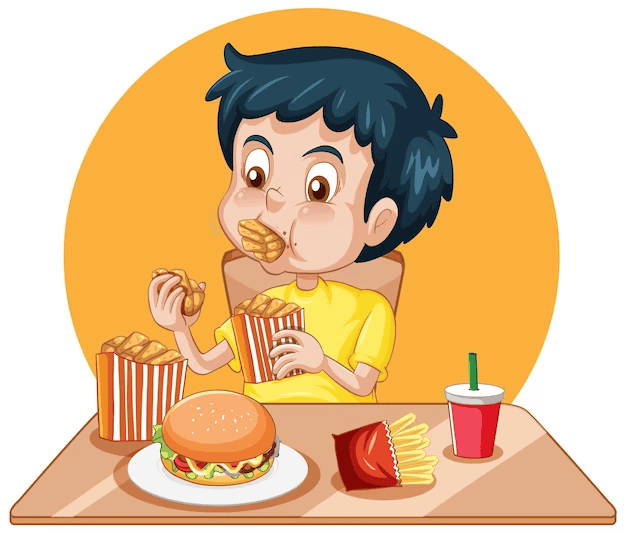
One thing I would like to caution you about the sensitivity tests is to take it with a grain of salt, which means to think of it as a SNAPSHOT of your body at a very specific moment in time, the time when you decided to do a quick finger prick for the blood samples that is. There is nothing wrong with trying to do testing to help us understand what foods we are having a hard time digesting at the moment, but it is dangerous to use the results of these tests to define or overly restrict your diet.
Here are the key take-homes:
- Food allergies are immune-mediated responses to a food allergen, either by IgE antibodies or by other components of the immune system. They are reproducible EVERY TIME.
- Food intolerances are foods that our bodies have a hard time digesting, therefore the byproduct of indigestion causes symptoms
- Food sensitivity is similar in theory to food intolerances, but it is not the same as a true food allergy and testing results can change widely from time to time.
Hi everyone, I am Dr. Eileen Shi, a board-certified holistic pediatrician who works with thousands of parents like you who want natural and holistic remedies to solve their children’s health issues by addressing the root of the problem. In our Las Vegas-based practice, me and my team work with families one-on-one offering concierge, individualized care to each patient holistically, minimizing unnecessary pharmaceuticals and treating the root cause.
To learn more about how you can work with us, click on “Become a Member” and fill out the information so that we can schedule a time to chat.
Dr. Eileen Shi
Board-Certified Las Vegas Pediatrician
Your pediatrician should always be your child’s advocate and believe your child always comes first. Little Roots Pediatrics families on their wellness journey with Concierge Pediatric care. We integrate evidence-based care with holistic health principles to provide the most up-to-date, direct-access pediatric care.







